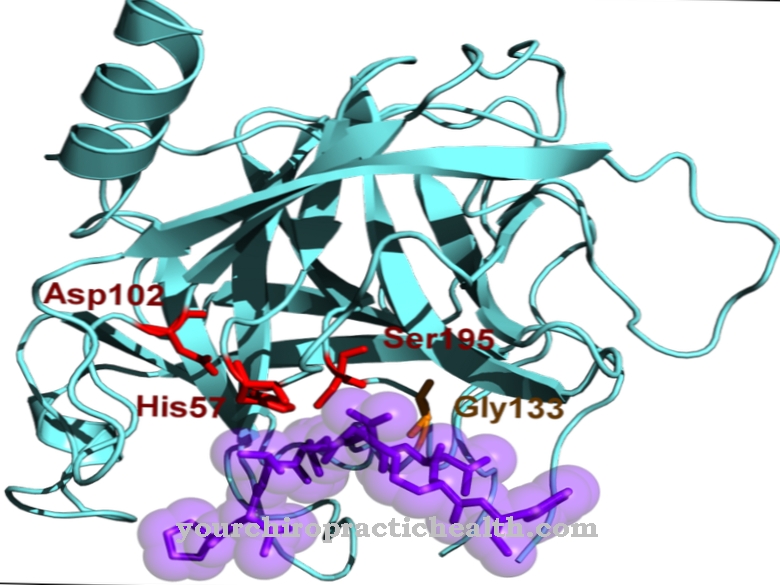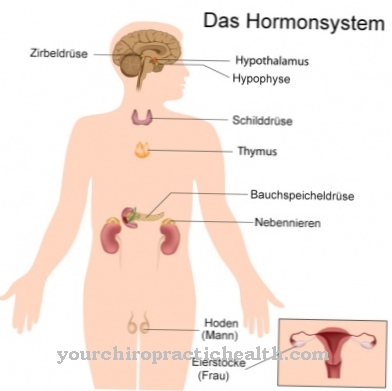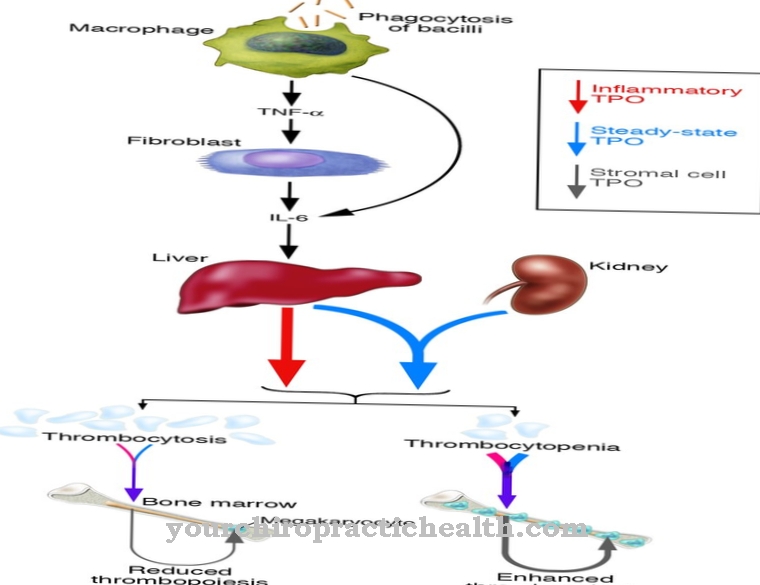magnesium is one of the essential substances. It is an indispensable mineral for the body, which must be supplied to the body on a daily basis in order to prevent deficiency diseases.
How magnesium works

There magnesium Found in almost all foods, most people have no problem consuming magnesium in sufficient quantities.
Magnesium is absorbed in the upper part of the small intestine. The adult body contains around 20 g of magnesium, almost 50% of which is stored in the skeleton. The rest is mainly stored in body tissues, 30% in the muscles.
Magnesium fulfills many important functions in the metabolism. It is involved in over 300 different enzyme reactions as an enzyme component. It is also an irreplaceable substance for muscles and nerves.
The average requirement for an adult is 300-400 mg daily.
meaning
magnesium is required by the body to generate energy and to produce certain proteins. It is also involved in regulating the pH value. Magnesium is also extremely important for the conduction of excitation in the nervous system. In connection with this, it also plays a central role in muscle work.
A magnesium deficiency therefore often leads to muscle cramps, cardiac arrhythmias and irritability. Restlessness, nervousness, lack of concentration and headaches can also be typical symptoms of a magnesium deficiency. In severe deficiency symptoms, it can lead to a heart attack. Such deficiencies are usually due to certain diseases. Magnesium deficiency often occurs particularly in the case of severe diarrhea and vomiting, intestinal inflammation, kidney dysfunction and alcoholism.
Certain medications such as diuretics, laxatives, or oral contraceptives also increase the need. In healthy people, excess magnesium is excreted through the kidneys. However, if these do not work properly, for example with reduced or impaired kidney function, an excess of magnesium can definitely occur. This can lead to cardiac arrhythmias, symptoms of paralysis, nausea and a drop in blood pressure.
Certain groups of people have an increased need for magnesium. This includes in particular athletes Diabetics, third trimester pregnant women, and the elderly. In pregnant women, attempts are made to prevent premature labor by administering magnesium. Older people tend to drink too little, which is why they often don't get enough magnesium.
In athletes, the increased need results from the increased excretion through sweating. Endurance athletes in particular need more magnesium, as the endurance of the muscles increases the metabolic rate significantly. Since magnesium plays a key role in these processes, there is an increased need. At the same time they excrete more of the substance through sweating.
In order to prevent a deficiency and thus a drop in performance, as well as serious consequences such as heart disease and muscle dysfunction, athletes should therefore ensure a balanced diet rich in magnesium. In addition, appropriate preparations can be taken for support.
Occurrence in food
magnesium can be found in almost all foods, including drinking water.
It is found in increased amounts in cereals, especially whole grain products, mineral water, nuts, green vegetables and sesame products. It is found in lower doses in fruit, poultry, dairy products, fish, potatoes and rice.
Alcohol, highly processed foods, lemonade, salads, cabbage, eggs and sauerkraut only provide a little magnesium.
A good quality mineral water is an excellent source of magnesium. It provides up to 80mg of magnesium per liter.
A balanced diet is usually enough to provide the body with sufficient magnesium.













.jpg)

.jpg)
.jpg)











.jpg)